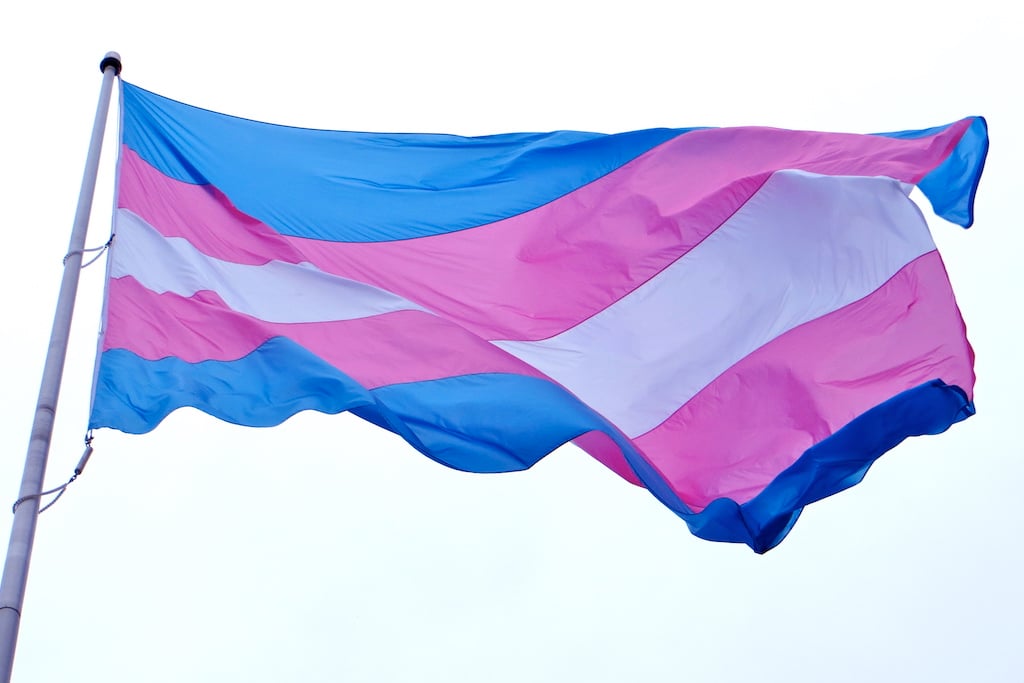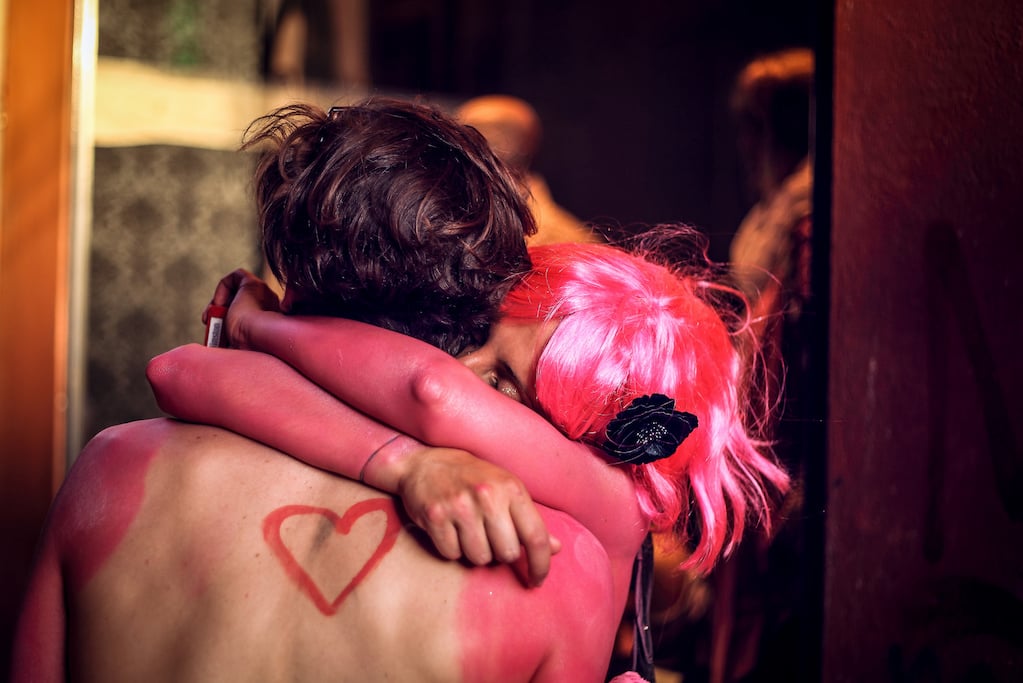What It’s Like Coming Out As Trans During The Postal Survey
The strange part of the experience is seeing so many rainbow flags, and not knowing if they’re actually for me.

I still haven’t found a comfortable sentence to use. When I told friends at work, I asked if they supported LGBT issues. Then, I told them I was the last letter, T. When I told my boss, I said that my gender was perhaps not as settled an issue as they may have expected upon hiring me. I still find it difficult to say “I am trans”. I’ve couched it in terms like “probably” or “might be”. But, realistically, the jury got back a while ago.
It was at the end of July. I’d got back from visiting family. When I’d first suggested that I might be trans (after three years of questioning), it was such a shock to them that I actually decided to put the issue to one side. But, after three miserable months, I decided I needed to explore it. I picked something very small. I shaved my legs. It took me nearly five hours.
They felt like mine — in a way that no part of my body had ever felt before.
I’ve since talked with multiple female friends about the institutional sexism associated with shaving one’s legs being connected to femininity — but there’s no rationalising that feeling of immediate recognition. It was like some illusion or layer had melted away. I’d seen myself for the first time.
Two weeks later, we’d be en route to a postal plebiscite. A survey that would turn into a battlefield. At this point, it’s probably expected that I’ll talk about the horrors. But, honestly? My experience has been much stranger than that.
Coming Out During The Postal Survey
Yes, I’ve listened as a thousand lies have been told about transgender kids and adults. We’re perverted. Mentally ill. Sexual predators. But I found myself a little numb to that. Aside from the fact that I have the good (?) fortune of only a tiny percentage of people knowing that I want to be a woman, I haven’t found the rhetoric around trans people in this debate to be any worse than usual.
Whether debating Safe Schools in Australia or bathroom laws in the US, most people are quite comfortable expressing their disgust and hatred for transgender people. When I shared a photo of my freshly-shaven legs on an anonymous image sharing community, I was told by multiple people I was mentally ill and needed to seek help. Many of them framed these comments as compassion.
The strange part of the experience is seeing so many rainbow flags — and not knowing if they’re actually for me.
No, the strange part of the experience is seeing so many rainbow flags — and not knowing if they’re actually for me. As Benjamin Law recently discussed in his Quarterly Essay, Australians are relatively okay with homosexuality. But it’s actually not hard to find even left-leaning homosexual people who draw the line at acknowledging (or ‘indulging’) transgender issues as valid.
It’s difficult for me to describe the relief I experienced in connecting with this part of myself. For most of my life, I’ve felt there was something dark and horrible within me. I didn’t know what — but, for decades, I felt like my entire body was clenched in a state of constant readiness. Since opening up to myself, that feeling’s gone. I am at peace. I am me.
Do I Belong Under The Rainbow Flag?
I’m terrified that someone with one of those rainbow flags is going to take that feeling of peace away. That in that person or company’s vision of an inclusive world, I’m going to be the little girl who isn’t let in the clubhouse.
This strange feeling has only been exacerbated by my gradual process of coming out — which has shown me an inclusive and accepting Australia even as the country’s most hateful have revelled in the opportunity to embrace their true colours. My family were shocked, yes. My mum is still helping me pick out tops and scheduling manicures with me. I do not come from a cool, progressive family either. My extended family encompasses multiple representatives of both convent and clergy.
I currently work for a global firm worth roughly half a billion dollars. I’ve been here for a matter of months. When I told my boss, they said they’re happy to do whatever necessary to make the workplace a comfortable space for me. In mid-August, I had breakfast with a friend in Surry Hills. I wore a black skirt, black tights and a women’s jacket. There were no comments, calls, horns honked or reaction of any kind. It was just breakfast. (And, at six foot and 120kgs, I don’t exactly blend into the background — skirt or no.)
Trans People Are Excluded From The Debate
It’s a profoundly surreal experience. My whole life, I’ve been accuately aware of my presence in any physical space. I’ve always felt like quite a galumph. But, when I dress as a woman, that all vanishes. Ironically, when I probably look even more colossal and awkward than ever, I feel completely calm.
I never expected that to be accepted like this at all. When I first went to a gig in a skirt and heels, I was terrified the security guard wouldn’t let me in the venue. I didn’t want to get a taxi in case the driver wouldn’t drive me anywhere. But in the centre of the city on a Saturday morning? Nobody seemed to care.
In this bizarre ideological brawl, transgender people have consistently felt either hypothetical or tokenistic in media coverage. Media outlets seem to think that if they can secure a (relative) trans celebrity like Cate McGregor, they should get their opinion. Otherwise, continue to talk about trans kids or adults as some vague, looming population of secret perverts or oppressed nobodies.
In other words: while our existence has been a source of great conflict in this debate, our voices have felt largely absent. I consider myself a little baby trans woman, really. I’m not out-and-proud. Hell, I buried my desire to be a woman so deep it took me nearly 30 years to actually find it. But, as simple a contribution as it may be, I’d still like to say: this plebiscite is fucking bizarre.
—
The author of this piece has asked to remain anonymous. He is a writer and musician based in Sydney. He currently identifies as male.

